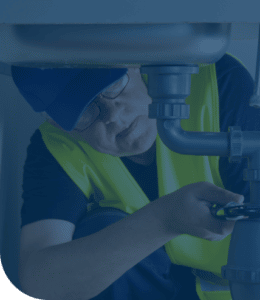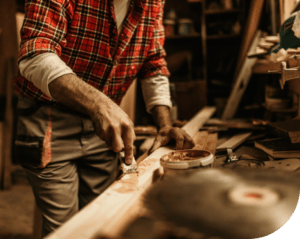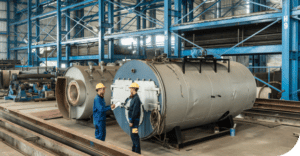New York Personal Injury Lawyer
Seeking justice for personal injury in New York? Turn to Lanier Law Firm’s skilled lawyers for dedicated support and expert guidance. Free consultations available.

Legally Reviewed By: Evan Janush
Managing Attorney | New York Office
- Page Last Updated:
- July 8, 2024
The Benefits of Working with a New York Personal Injury Attorney from The Lanier Law Firm
Personal Injury Cases We Handle
Why Should I Hire a Personal Injury Lawyer After an Accident?
How Much Does it Cost to Hire a Personal Injury Lawyer in New York?
Statute of Limitations on Personal Injury Lawsuits in New York
Are you struggling with painful physical injuries, or have you suddenly lost a family member because of a recent accident in New York? If so, contact the New York personal injury lawyers at The Lanier Law Firm to discuss your legal rights and options. You may be entitled to compensation for costs related to your medical care and lost wages, as well as the pain and suffering you’ve endured.
Since 1990, The Lanier Law Firm has been a passionate advocate for injury victims and grieving families in New York. Our clients are the heart and soul of our law firm, and their stories are the driving force behind the work we do. We’re proud to help them fight back against insurance companies, corporations, hospitals, and other powerful adversaries after their lives have been turned upside down unexpectedly.
Our results speak for themselves: We’ve won tens of billions of dollars in settlements, benefits, and jury awards.
We represent clients in all types of personal injury matters, including car accidents, truck accidents, medical malpractice, product liability, mass torts, wrongful death, and other acts of negligence. Don’t hesitate to call our New York City law office to discover how we can help you demand what is rightfully yours. Your first consultation is free, so contact us today.
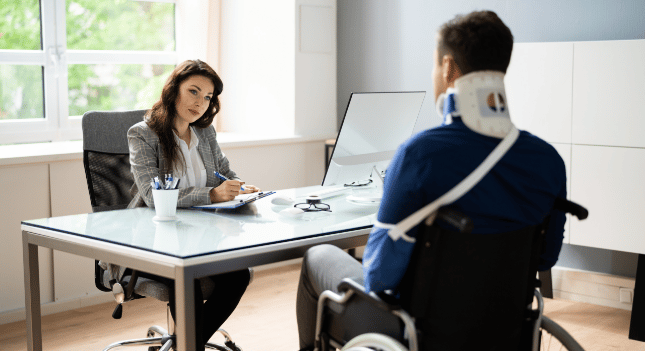
The Benefits of Working with a New York Personal Injury Attorney at the Lanier Law Firm
After an unexpected accident, don’t let intimidation or the presumed expense of hiring a lawyer prevent you from enlisting the help of a legal professional.
Your choice of attorney matters, which is why you should call The Lanier Law Firm.
- We’ve been standing up to powerful corporations on behalf of accident victims in New York since our founding in 1990.
- Our 60+ attorneys are extremely skilled negotiators who truly thrive in the courtroom. We’re not afraid to take cases to trial in state and federal court and argue passionately on behalf of our clients.
- We’ve won some of the largest verdicts in the nation’s history.
- Our attorneys have received national recognition and awards for their hard work, dedication, and results.
- Founding attorney Mark Lanier has been called “one of the top civil trial lawyers in America” by The New York Times.
Give yourself every opportunity to not only win your personal injury case but also maximize your financial award. Put a team of experienced, successful New York trial attorneys in your corner.
By submitting this form, you agree to our terms & conditions. Please read the full disclaimer.
Caterpillar Inc for paralyzed construction worker
verdict for injured worker at West Star Transportation
in damages for woman injured by drunk driver
verdict for worker injured on construction site
Personal Injury Cases We Handle
Our top-rated New York trial attorneys have helped clients recover substantial damages in a wide range of personal injury cases. We frequently handle cases involving catastrophic accidents that result from a variety of negligent actions taken by reckless people or entities.
Accident and Injury Claims
- A 32-year-old operator at a facility in Louisiana who suffered burns over 50 percent of his body in a workplace accident
- A 23-year-old man who was injured in a plant explosion and sustained second- and third-degree burns over the majority of his body due to the explosion
- A man who was killed after being hit by a speeding train while walking across train tracks in an Exxon Mobil refinery
- A warehouse worker in Houston who sustained severe internal injuries after being crushed by a piece of industrial equipment
Car Accidents
Car accidents are common and can cause injury. The Lanier Law Firm helps New York car accident victims get compensation.
Truck Accidents
Truck accidents can cause severe damage due to the sheer force and momentum. Our skilled truck accident lawyers are here to help you.
Motorcycle Accidents
Motorcycle accidents are a serious threat, often leading to devastating injuries for riders. We fight to get the compensation you deserve after a crash.
Medical Malpractice
Medical errors cause thousands of deaths each year. We fight to hold negligent doctors and healthcare providers accountable.
Premises Liability
We help you seek compensation for injuries sustained due to unsafe conditions on someone else's property, often caused by negligence.
Wrongful Death
In the face of a devastating loss, our compassionate NYC wrongful death lawyers stand by your side and fight to hold those responsible accountable.
Mesothelioma and Asbestos Claims
Mesothelioma is a deadly cancer caused by asbestos exposure. The Lanier Law Firm stands beside victims in New York, fighting for justice against corporations that knowingly used asbestos without proper safety measures.
The high concentration of older buildings in New York City creates a significant risk of asbestos exposure. Construction sites and the aftermath of 9/11 further complicate the situation. A study by NYC’s Department of Environmental Protection revealed a disturbing truth: a large portion of city buildings contain asbestos, often with damaged materials that could release dangerous fibers.
Those who have historically worked in blue-collar professions, frequently exposed to asbestos-containing materials without proper protection, face the highest risk of developing mesothelioma. Occupations facing the highest risk of asbestos exposure include:
- Auto mechanics
- Bricklayers
- Building inspectors
- Carpenters
- Demolition workers
- Drywallers
- Electricians
- Insulators
- Ironworkers
- Laborers
- Longshoremen
- Maintenance workers
- Millwrights
- Painters
- Pipefitters
- Plumbers
- Roofers
- Shipyard workers
- Steamfitters
- Tile setters
- U.S. Navy personnel
- Welders
Our skilled New York mesothelioma attorneys have years of experience in asbestos litigation. We carefully examine your work and life history to identify every source of potential asbestos exposure. This ensures all responsible companies are held accountable, maximizing the compensation you receive.
Whether through negotiation or courtroom battles, The Lanier Law Firm prioritizes securing the highest possible financial compensation to cover medical bills, lost wages due to illness, and the pain and suffering you endure.
New York law imposes strict deadlines for filing mesothelioma lawsuits. Don’t let these deadlines jeopardize your case. Early action allows our team to build a strong foundation for your claim.
If you suspect mesothelioma due to asbestos exposure, contacting The Lanier Law Firm is the first crucial step. Our team of experienced professionals will guide you through the legal process, advocating for the compensation you deserve. Don’t face this battle alone. We stand with you, committed to securing justice and financial security in the face of this devastating illness.
Product Liability Claims
Product liability law safeguards consumers from injuries caused by defective products. The Lanier Law Firm specializes in mass torts, situations where a single defective product harms a large number of people.
Product liability goes beyond proving a company’s negligence. The doctrine of strict liability holds manufacturers, distributors, and retailers responsible for injuries caused by products with the following defects:
Defective Design
The product itself is inherently unsafe due to a flaw in its blueprint.
Defective Manufacturing
Errors during production create a dangerous product.
Failure to Warn
The product lacks proper instructions or warnings about potential risks.
When a defective product affects many people, it becomes a mass tort. These cases are often streamlined through class action lawsuits, in which a single lawsuit represents all injured parties. In other cases, there is multi-district litigation (MDL), where multiple lawsuits are consolidated under one judge for pretrial proceedings.
Mass torts can involve a wide range of consumer products, including food, children’s toys, and medical devices. The Lanier Law Firm specifically targets mass torts involving pharmaceuticals and medical devices. The pharmaceutical industry, known for its immense profits, can prioritize financial gain over patient safety. We pursue the highest possible settlements and verdicts for our clients, including:
- Landmark Victories: We secured a $253 million settlement against Merck for the painkiller Vioxx (the first-ever verdict against the company).
- National Settlements: We were instrumental in a $4.85 billion national settlement in Vioxx cases.
- Holding Medical Device Manufacturers Accountable: Our firm achieved a combined verdict exceeding $1 billion against DePuy and Johnson & Johnson for faulty hip implants, followed by additional large verdicts.
- $7.25 Billion for Transvaginal Mesh Victims: Our efforts resulted in a total of $7.25 billion in verdicts against manufacturers of transvaginal mesh, a medical device linked to severe complications.
We are humbled to share these significant outcomes which demonstrate the impact our team has had on our clients’ lives. We find deep satisfaction in holding negligent corporations accountable and securing the compensation our clients deserve.
Why Should I Hire a Personal Injury Lawyer After an Accident?
Personal injuries in New York are an unfortunate reality and can have serious long-term effects on victims and their families.
According to the New York State Department of Health, the rate of deaths due to personal injury remained fairly steady at 40.3 per 100,000 residents from 1995 to 2014. Similarly, the rate of hospitalizations due to injury averaged around 750 per 100,000 for New Yorkers in the same time frame.
Data from the Centers for Disease Control and Prevention (CDC) showed that injuries are the leading cause of death for individuals aged one to 44 in the state of New York.
Simply put, accidents — particularly those resulting in catastrophic injury and death — are all too common in New York. When you or a loved one is hurt through no fault of your own, it’s important to take legal action against those responsible.
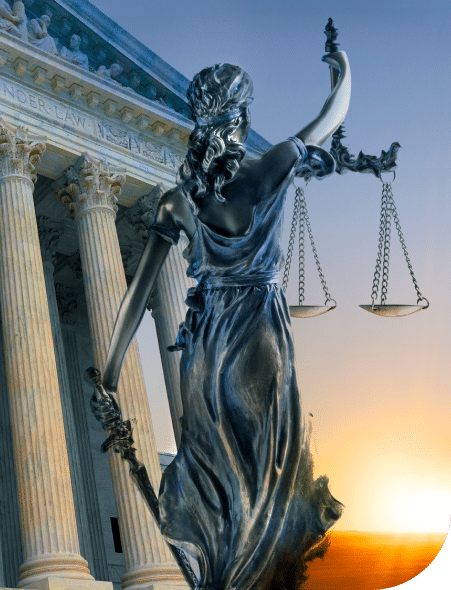
However, at-fault parties will typically be well-represented by defense counsel or direct you to their insurance company. This can make your path to compensation quite challenging, especially when you consider the experience, resources, and power you’ll be up against.
Hiring an experienced personal injury attorney in New York can make all the difference in the world.
- You’re more likely to achieve a successful result when you hire an attorney to represent you.
- Insurance companies acknowledge that settlements tend to be higher when accident victims are represented by legal counsel.
- You level the playing field by putting an experienced legal advocate in your corner, forcing the other side to fight fairly.
- You don’t just get a lawyer; you benefit from their vast resources and connections, too.
- You’ll be better prepared to defend against victim-blaming tactics designed to limit or prevent a financial payout.
Of course, not all personal injury lawyers in New York are equal. You deserve to work with an experienced, successful, and respected litigator who genuinely cares about you and your future. That’s why The Lanier Law Firm should be your first call after you are hurt. We’ll be there for you every step of the way, backing your case with resources that rival those of the largest firms in the nation.
How Much Does it Cost to Hire a Personal Injury Lawyer in New York?
An unexpected injury can have significant financial repercussions. Medical treatment can be costly, and the inability to work and generate an income can make it tough to cover your day-to-day bills.
At The Lanier Law Firm, we do not want the cost of legal assistance to add to your already stressed financial situation. That’s why our New York personal injury attorneys work on contingency.
We assume the risks of litigation. We front the costs. We only get paid if we win your personal injury case.
When we win, our attorneys recover a pre-established percentage of your financial award in accordance with your contractual agreement. Under New York law, personal injury attorneys typically recover no more than one-third of damages.
We’ll always be upfront and transparent about the cost of hiring our law firm. Call our law office in New York City to learn more.
Statute of Limitations on Personal Injury Lawsuits in New York
Under New York law, the statute of limitations for most personal injury lawsuits is three years. This will give you until the third anniversary of the date you were injured — or discovered your injury — to pursue compensation from responsible parties.
Exceptions to New York’s Civil Statute of Limitations
- Wrongful death: Two years from the date of a victim’s death
- Medical malpractice: Two years and six months from the date or discovery of an injury
- Government tort claims: 90 days from the date of an injury
In all cases, it is recommended that you contact a personal injury attorney promptly after you’ve received medical treatment.
Call The Lanier Law Firm to discuss the details of your New York personal injury case. We offer a free confidential case evaluation, so reach out today.
By submitting this form, you agree to our terms & conditions. Please read the full disclaimer


